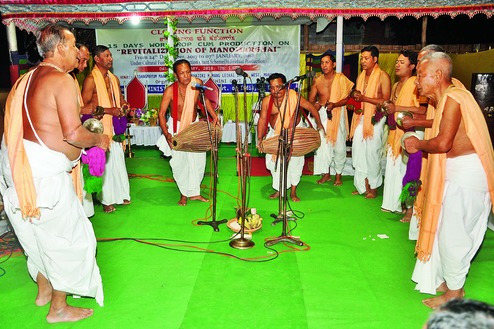
Jorhat, Nov. 8: The veterinary science and animal husbandry department of Assam Agricultural University is breeding guinea fowls to provide food security to farmers and create an additional source of income.
Dhrubajit Hazarika, a scientist of the department, said they started the project after sourcing five guinea fowls, which is generally found in the wild, from a person at Silonijan in Karbi Anglong district.
"Fowl meat has high protein. Even if a farmer does not go for largescale farming, he can cull a bird or two in a week, which provides good nutritional value," he said, adding that the bird has other advantages. "It is a watchdog bird. It can be kept along with other poultry and it raises an alarm if a predator enters the coop. Moreover, it eats grass and parasites like mosquitoes, leeches and lice, keeping the environment clean."
Hazarika said they were trying to increase the fowl population so the birds could be given to farmers. The type of feed to be given to the birds and other parameters were also being worked out.
The university has got two very high-yielding poultry birds (chicken) - Shree Nidhi and Dhanashree -for largescale farming.
Hazarika said more than 50 farmers in Jorhat district had taken to turkey farming after the bird was displayed at a fair some months ago.
Turkey meat, a traditional preparation during Christmas in the West, is also a good source of protein and its egg is good for people with diabetes and anaemia because of its high albumin content.
In five months, a male turkey weighs 6-7kg while a female weighs 4-5kg. They are foragers and eat grass. There is no need to provide feed, which proves costly while rearing chicken. A female turkey lays about 60 to 80 eggs annually.
The department is trying to make farmers take to turkey farming because of its lean meat. Two breeds - Beltsville white turkey and common black turkey - are being reared simultaneously with guinea fowl.
Quail is another bird which the department has recommended to farmers to increase the nutrition quotient. The meat and egg of quail has less than one third of the cholesterol content of chicken and three times more vitamin A.
The Krishi Vigyan Kendra at Kaliapani, Teok, has been advocating the consumption of domestic Japanese quails to residents of nearby villages as part of nutritional security and has even developed a cheap incubator to hatch eggs.
The quail takes about 40 days to reach maturity and is more disease-free compared to a chicken. A quail weighing a kilo yields 700g meat while 1kg chicken yields 600g meat.










